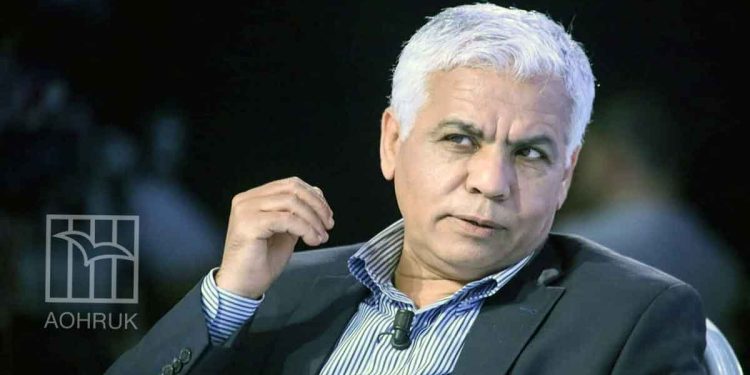The Tunisian regime continues to launch arbitrary arrests against rivals of current President Kais Saied in the presidential elections.
In a new development, the Tunisian authorities arrested the former presidential candidate Safi Saeed and his companion, on charges of “illegally crossing the border towards a neighboring country” on Tuesday evening.
Safi Saeed is a Tunisian writer and a member of the previous parliament. He ran for the presidential elections before announcing his withdrawal from the race in early August after his electoral file was initially rejected, describing the presidential elections as a “very poor farce.”
Tunisia has witnessed an increase in the pace of political trials and prosecutions as Tunisian presidential elections, scheduled to be held on 6 October, as several candidates were prevented from participating, and even with some candidates being able to overcome the obstacle of endorsements by collecting 10,000 endorsements, some of them were not able to obtain some administrative documents, such as Card No. 3 for criminal records.
On Monday, the Tunisian Administrative Court announced that it had rejected all seven appeals submitted by presidential candidates against the decisions of the electoral commission.
The opposition’s worries that critical voices will continue to be persecuted in the run-up to the elections are strengthened by the verdict rendered against Kais Saied’s rivals in the presidential race.
The government of President Saied is accused by the opposition parties, many of whose leaders are incarcerated, of pressuring the courts to bring charges against Saied’s opponents in the 2024 elections in order to help him secure a second term.
Parties assert that the holding of free and fair elections depends on the release of political prisoners and the freedom of the press to operate without interference from the state.
Since February 11, the Tunisian authorities have carried out an arrest campaign against political leaders, media professionals, and activists, who consider the exceptional measures imposed by President Kais Saied a coup against the revolution’s constitution (the 2014 constitution) and the consecration of absolute one-man rule.






























